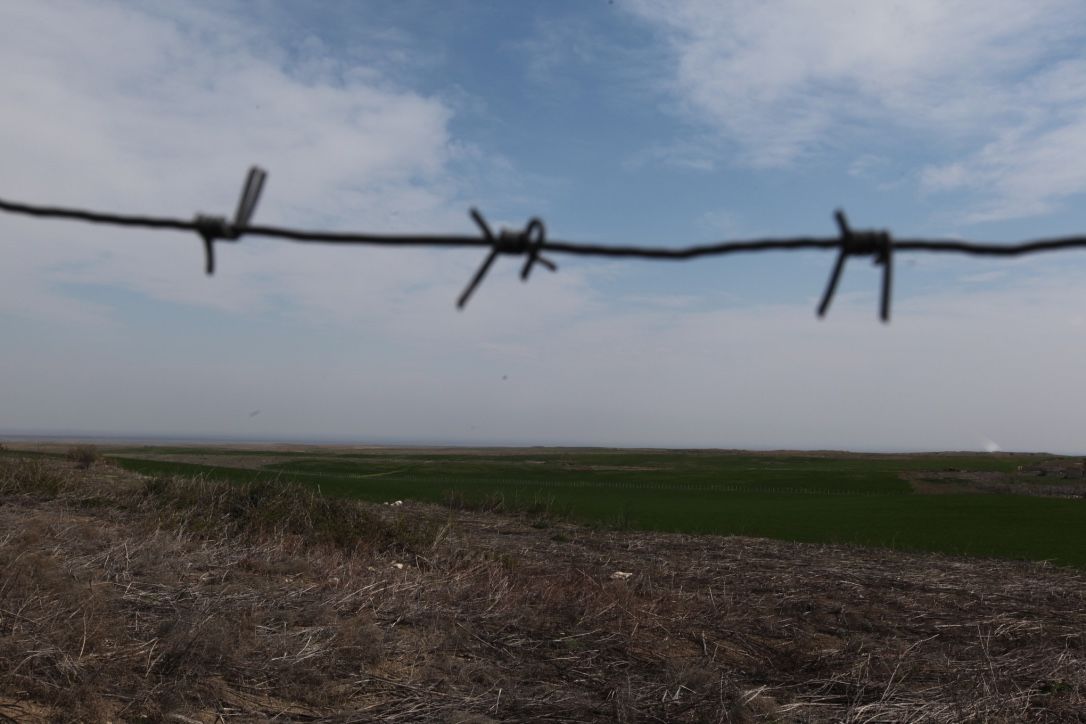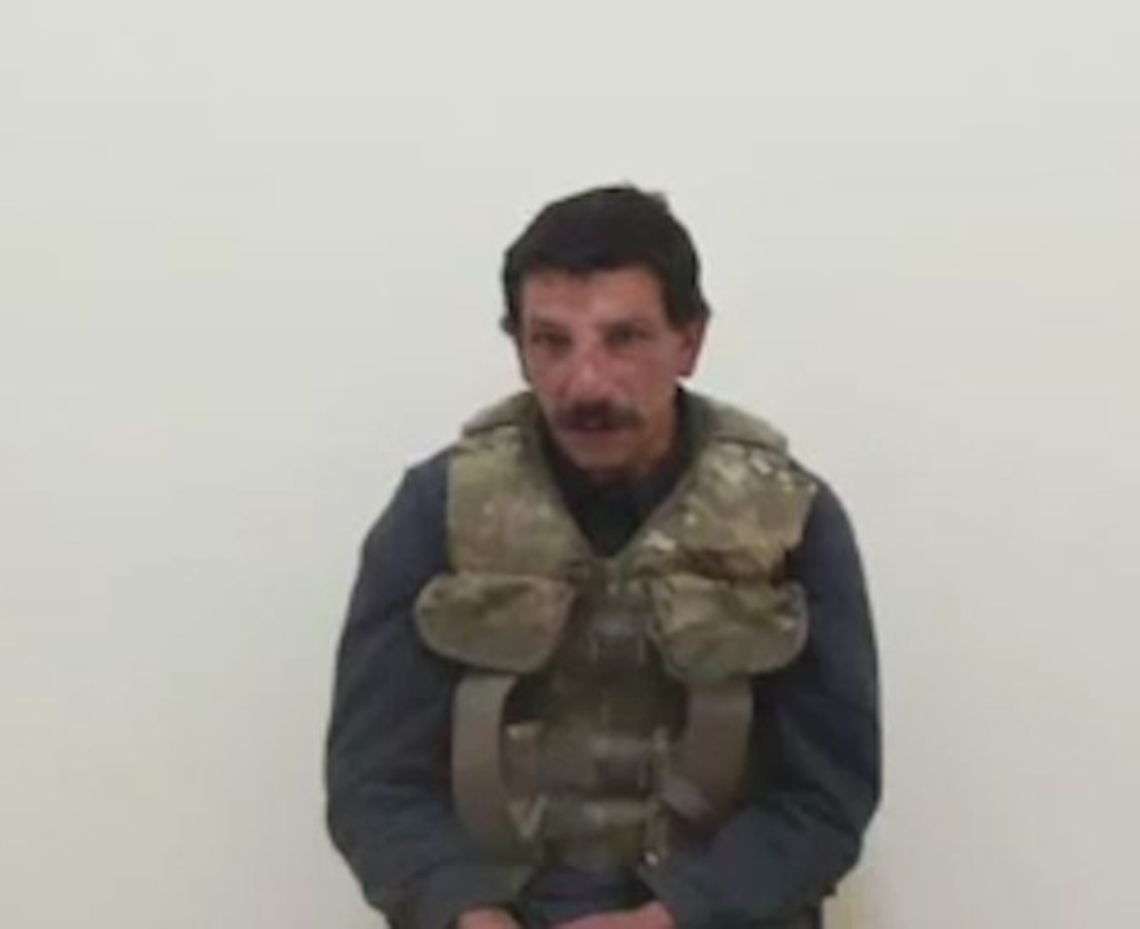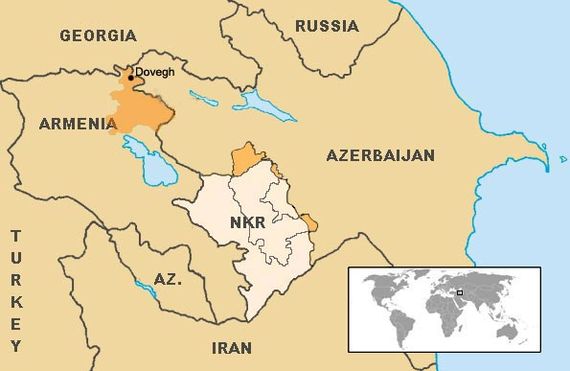

The Defense Ministry of Azerbaijan released a video of a man allegedly captured as a result of an Armenian military infiltration attempt into Azerbaijan. Armenian officials and media look into the identity of the man.
The Defense Ministry of Azerbaijan released a video on June 21 of a man they allege is a captured Armenian soldier. They claimed that the man in the video, who is wearing military fatigues and speaking in broken Armenian, was captured after an attempt by the Armenian military to infiltrate into Azerbaijani territory.
The Defense Ministry of Artsakh released a statement earlier in the day, refuting the allegation and stating that no such operation had been realized by the Defense Army.
In the video, the man says that his name is Zaven Karapetyan (b. 1974) from the village of Dovegh in northeastern Armenia. Karapetyan goes on to say that he had been in fact part of a special Armenian military operation. However, Samvel Gorginyan, the mayor of Dovegh told Armenian Public Radio that no one by that name lives in the village.
The spokesperson of Armenia’s Ministry of Defense Artsrun Hovhannisyan confirmed that Karapetyan does not serve in the armed forces. In a Facebook status, Hovhannisyan wrote: “The Azerbaijani Defense Ministry is disseminating misinformation.The Armenian Armed Forces has not realized any diversionary attempt, furthermore has not lost a single soldier.”
Later, the mayor of Vanadzor Mamikon Aslanyan confirmed that Karapetyan is in fact a citizen of the Republic of Armenia and was registered at the senior’s home in Vanadzor in order to receive a passport [In the Republic of Armenia, passports are primarily used as ID]. He told Azatutyun that Karapetyan was raised in an orphanage, did not have a fixed address and survived by scavenging.

In another interview with Yerkir.am, Aslanyan said that Karapetyan is not originally from Vanadzor, did not have any family, was not in a stable mental state and that most probably did not realize he had crossed into Azerbaijani territory.
The circumstances of his border crossing remain unclear.
Tensions have been high along the Karabakh-Azerbaijan Line of Contact over the last several days. On June 16, three Armenian soldiers were killed when their military position came under attack by the Azerbaijani armed forces who utilized anti-tank grenade launchers. The servicemen - Arayik Matinyan, Vigen Petrosyan and Vardan Sargsyan were all born in 1997. A day later, another soldier, Narek Gasparyan was mortally wounded following Azerbaijani fire bringing the total number of deaths to four.
This was the worst violation of the ceasefire regime since the 2016 April War.
On June 19, the OSCE Minsk Group Co-chairs were in Baku and released a statement about the recent escalation on the Line of Contact. Artak Nersisyan of the Foreign Affairs Ministry of Artsakh told News.am that the Ministry views that statement “as another unambiguous reference to Azerbaijan as the party violating the ceasefire regime in the Azerbaijani-Karabakh conflict zone.” Nersisyan went on to say that calling out the aggressor by the OSCE Minsk Group will strengthen the “implementation of the agreements reached in Vienna (May 16, 2016) and St. Petersburg ( June 20, 2016), aimed at strict observance of the termless trilateral agreements of 1994 on ceasefire and of 1995 on strengthening the ceasefire regime, for the establishment of a mechanism for investigation of incidents on the Line of Contact between the armed forces of Artsakh and Azerbaijan, and for the expansion of the Office of the Personal Representative of the OSCE Chairperson-in-Office.”
War Crimes in Spring
By Maria Titizian
There has been a pattern of Azerbaijani war crimes committed since the end of the Karabakh War in 1994. The Four Day War last April was no exception. EVN Report presents a detailed account of Azerbaijani war crimes in Artsakh (Nagorno Karabakh).
Below is the full statement by the OSCE Minsk Group:
BAKU, 19 June 2017 – The Co-Chairs of the OSCE Minsk Group (Ambassadors Igor Popov of Russia, Stephane Visconti of France, and Richard Hoagland of the United States of America), together with the Personal Representative of the OSCE Chairperson-in-Office, Ambassador Andrzej Kasprzyk, traveled to the region in June. The main purpose of the Co-Chairs’ visit was to discuss the position of the Sides towards the next steps in the Nagorno-Karabakh peace process after the trilateral ministerial meeting in Moscow (28 April) as well as the overall situation in the conflict zone.
The Co-Chairs met with Armenian President Serzh Sargsyan in Yerevan (10 June) and with Azerbaijani President Ilham Aliyev in Baku (19 June). In both capitals, they also held consultations with the Foreign and Defence Ministers. The Co-Chairs traveled to Nagorno-Karabakh (12 June) to meet with de facto authorities, and visited a number of territories around Nagorno-Karabakh, including the Zangelan, Kubatly, Lachin, and Kelbajar districts. In Baku, they also met with the Azerbaijani community of Nagorno-Karabakh.
In their talks in Baku, the Co-Chairs expressed deep concern over the recent violations of the ceasefire, resulting in casualties on the Line of Contact, on the eve of their visit to Azerbaijan. They appealed to the leadership of Azerbaijan to avoid further escalation. The Co-Chairs are sending the same message to the leadership of Armenia and de facto authorities of Nagorno-Karabakh. They encouraged the Sides to consider measures that would reduce tensions on the Line of Contact and the international border between Armenia and Azerbaijan.
In both capitals, the Co-Chairs called upon the parties to re-engage in negotiations on substance, in good faith and with political will. They underscored that this is the only way to bring a lasting peace to the people of the region, who expect and deserve progress in the settlement of the conflict. The Presidents expressed their intention to resume political dialogue in an attempt to find a compromise solution for the most controversial issues of the settlement.
The Co-Chairs will travel to Vienna to brief the members of the Minsk Group on 3 July. They also plan to meet again soon with the Azerbaijani and Armenian Foreign Ministers to discuss modalities of the forthcoming work.
NOTE: As a matter of Editorial Policy, EVN Report will not share the video of Zaven Karapetyan.



